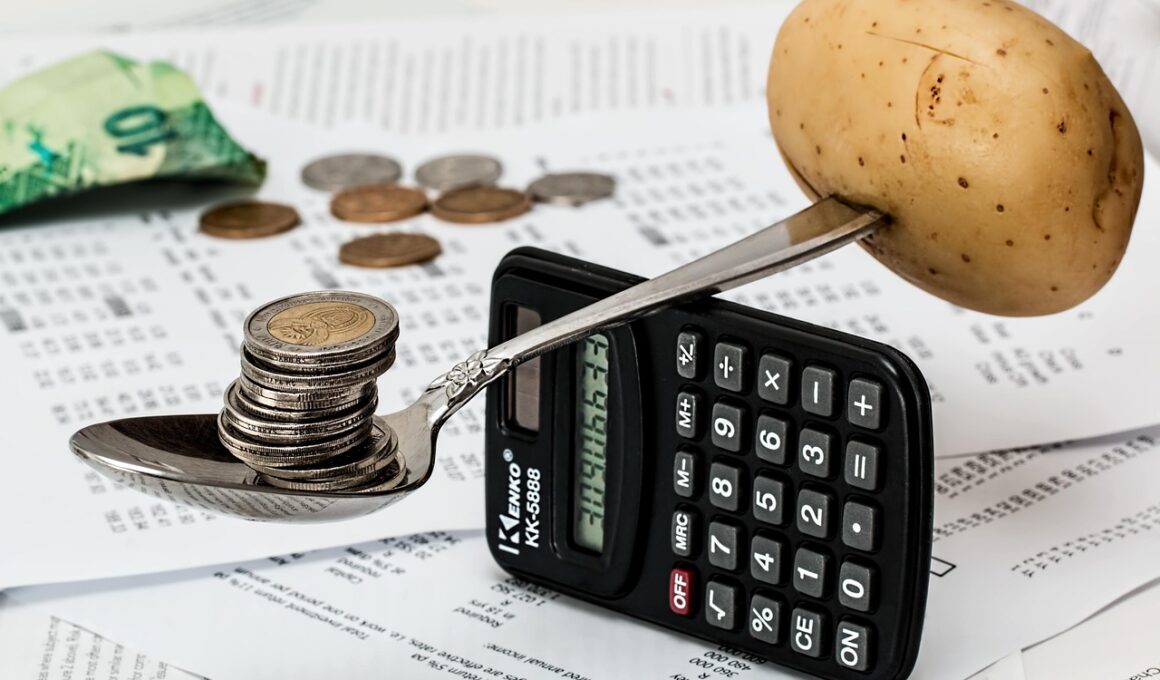The Impact of Money Management Apps on Spending Habits
Money management apps have become integral tools for individuals aiming to take control of their finances. These apps facilitate budgeting, tracking expenses, and presenting insights that can significantly influence spending habits. For example, users can categorize their expenses, enabling them to identify unnecessary spending areas. Furthermore, these apps often provide visual representations of spending through graphs and charts, making financial data more digestible. By offering reminders for bills and goals savings, users are less likely to miss payments or overspend. As a result, such features encourage users to make informed financial decisions and could lead to increased savings over time. These tools also help in creating budgets tailored to individual needs. Users find it easier to stick to budget limits when they receive direct feedback related to their spending. Overall, the convenience and accessibility of these apps change how individuals approach their finances, fostering a culture of saving over spending. Consequently, users are likely to adapt their spending habits positively. In conclusion, the advent of money management apps has proven essential for modern financial literacy and responsible spending.
Key Features of Money Management Apps
Money management apps come equipped with a variety of features designed to cater to diverse financial needs. One significant feature is expense tracking, which allows users to log their spending easily. By categorizing expenses, users can pinpoint where their money goes each month. Another vital component is budgeting tools, where users can establish monthly limits and track progress in real-time. Automated alerts for bills and payment reminders strengthen financial discipline, preventing late fees or missed payments. Integration with bank accounts and credit cards also enhances the tracking process, as users can access a full financial picture without manual entry. Additionally, many apps provide educational resources on financial literacy, empowering users to enhance their knowledge. Users can set financial goals, whether short-term or long-term, and monitor their progress visually through charts. The ability to analyze spending patterns helps users identify habits that may lead to overspending. Some apps even offer saving challenges or rewards, motivating users to stick to their financial plans. These features transform budgeting from a tedious task into an engaging activity, paving the way for healthier financial habits.
Influence on Spending Behavior
The influence of money management apps on spending behavior is profound and multidimensional. By providing users with a clear overview of their financial situation, these apps encourage responsible spending practices. For instance, when users see how much they spend on dining out versus groceries, they may reconsider discretionary expenses. Studies suggest that the act of tracking expenses leads to increased mindfulness regarding spending. Users who regularly engage with their app are likely to make more informed choices. Implementing budget alerts or limits nudges users towards spending within their predetermined budget, fostering greater financial discipline. Moreover, the shareability of financial goals with friends or family can add social accountability. Users may adjust their behaviors due to shared objectives or mutual encouragement. Furthermore, gaining insights into patterns and behaviors allows users to anticipate excessive spending and identify triggers. As individuals begin to see progress towards their goals through app visuals, they are often inspired to continue or increase their saving efforts. Overall, these behavioral changes cultivate a mindset shift that values budgeting and prioritizes long-term financial stability over instant gratification.
As people incorporate money management apps into their daily lives, it’s crucial to examine the psychological effects associated with this shift. Financial stress tends to decrease when individuals actively engage in budgeting and expenditure tracking. The psychological relief of knowing one is managing their finances creates a sense of security and empowerment. The satisfaction derived from seeing savings grow can reinforce positive spending patterns. Users may also experience shifts in self-perception, feeling more in control of their financial destiny. Additionally, the gamification aspects found in some apps promote continued engagement; users earn badges or rewards for reaching their financial goals, making the process enjoyable. Being able to visualize progress contributes to a positive feedback loop, promoting further responsible behavior. Consequently, these apps help stabilize financial anxiety and encourage proactive management of money. Understanding this relationship is paramount for app developers looking to enhance user experience. By integrating more motivational features and personalized recommendations, they can drive further engagement. Ultimately, the mental toll of financial mismanagement can be alleviated, yielding healthier attitudes towards money and fostering long-term financial well-being.
Beyond personal use, the impact of money management apps extends to collective financial health within communities. These apps serve as catalysts for dialogue about finances, encouraging users to share experiences and insights. As financial literacy becomes a focal point, users often discuss budgeting techniques and tips learned through the apps. By fostering these conversations, communities can build stronger networks of support around financial habits. Financial challenges like saving for emergencies or managing debt become collective goals rather than individual burdens. Furthermore, community partnerships and financial workshops can provide complementary education, bolstering the benefits of using money management apps. As more people engage with these tools, the overall financial landscape may shift towards greater accountability and caution. Users may also advocate for broader economic policies designed to support responsible consumer behavior when they’re more financially aware. Increased collaboration can stimulate local economies and reduce financial woes among residents. Encouraging this shift through targeted community initiatives can make money management apps accessible to wider audiences. Understanding the collective impact of financial literacy can lay the groundwork for developing sustainable economic practices within communities.
The rise of money management apps has also attracted the attention of financial institutions, leading to innovations in services offered to customers. Banks and financial companies are partnering with app developers to create personalized financial products that align with users’ needs. For instance, specialized savings accounts or investment options tailored to app users are emerging. Integration with budgeting tools can facilitate seamless transfers, enabling users to save or invest any surplus funds rapidly. Customers increasingly expect value-added services such as financial coaching or personalized financial assessments. As traditional banking evolves alongside the fintech landscape, financial education becomes accessible through these innovative platforms. Moreover, these partnerships can create avenues for more significant financial incentives, such as lower interest rates or cashback rewards, to encourage responsible spending behaviors. In this dynamic environment, customers benefit from a private banking experience tailored specifically to their lifestyles. As this trend continues, it’s crucial for users to remain vigilant and choose services that align with ethical practices. Emphasizing transparency in financial products will be essential as collaboration continues to shape the future of personal finance.
In conclusion, money management apps have reshaped personal finance approaches, influencing user behaviors, mindsets, and communal discussions. Their role in enhancing financial literacy and encouraging responsible habits cannot be understated. As individuals become more proactive about managing their finances, they are equipped with the knowledge and tools needed to make better decisions. These apps create positive feedback systems that motivate ongoing engagement with financial goals. Thus, users are empowered to transform the way they handle money, shifting from reactive to proactive financial management. The collaboration between developers, financial institutions, and communities will further enhance the effectiveness of these tools. As awareness of financial literacy continues to spread, the societal implications may lead to healthier economic conditions. The future of personal finance looks promising, with an emphasis on technology-driven solutions to age-old challenges. Therefore, embracing these changes is crucial for anyone looking to gain control of their financial future. Overall, the impact of money management apps will continue to evolve, proving essential in advancing personal finance principles for generations to come.



